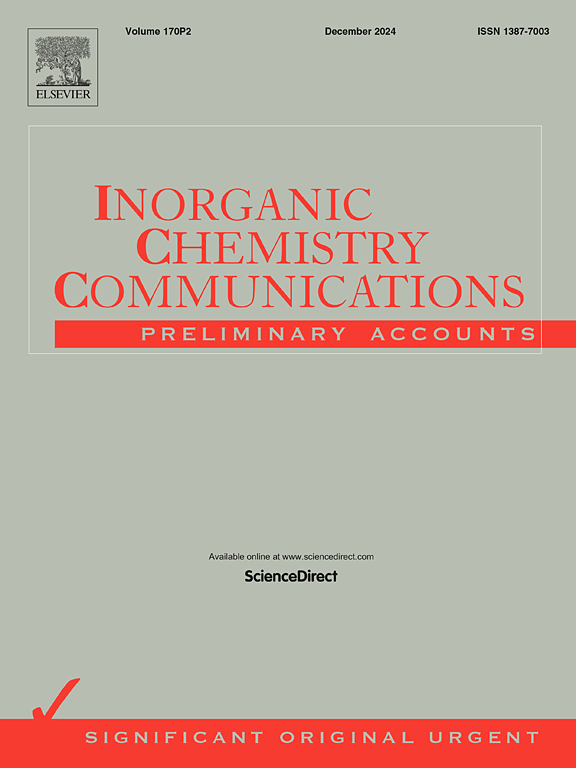n -苯基苯恶嗪基金属-有机大环组装用于芳基卤化物的高效光催化还原
IF 4.4
3区 化学
Q1 CHEMISTRY, INORGANIC & NUCLEAR
引用次数: 0
摘要
可见光驱动的光催化,利用太阳能触发化学转化,由于金属-有机超分子系统具有特殊的定向能量转换能力,已经取得了显着进展。本文报道了一种稳定的n -苯基苯恶嗪(PXZ)衍生金属有机大环(MOM)作为高效光催化剂。MOM催化剂通过超分子光诱导电子转移(PET)过程实现了芳基卤化物的还原和C-C偶联反应。由于光活性mom与封装在其腔内的底物之间的主客体相互作用,使得该超分子体系优于其他相关体系,因此观察到催化效率和氧耐受性的提高。本文章由计算机程序翻译,如有差异,请以英文原文为准。

Assembling of N-phenylphenoxazine based metal-organic macrocycle for efficient photocatalytic reduction of aryl halides
Visible light-driven photocatalysis, which harnesses solar energy to trigger chemical transformations, has been significantly advanced by metal–organic supramolecular systems due to their exceptional capability for directional energy conversion. Herein, we report a stable N-phenylphenoxazine (PXZ)-derived metal–organic macrocycle (MOM) as a highly efficient photocatalyst. Through a supramolecular photoinduced electron transfer (PET) process, the MOM catalyst enabled the reduction and C–C coupling reactions of aryl halides. The improvement in catalytic efficiency and oxygen tolerance were observed, attributed to the host–guest interaction between the photoactive MOMs and the substrate encapsulated within its cavity, rendering this supramolecular system superior to other relevant systems.
求助全文
通过发布文献求助,成功后即可免费获取论文全文。
去求助
来源期刊

Inorganic Chemistry Communications
化学-无机化学与核化学
CiteScore
5.50
自引率
7.90%
发文量
1013
审稿时长
53 days
期刊介绍:
Launched in January 1998, Inorganic Chemistry Communications is an international journal dedicated to the rapid publication of short communications in the major areas of inorganic, organometallic and supramolecular chemistry. Topics include synthetic and reaction chemistry, kinetics and mechanisms of reactions, bioinorganic chemistry, photochemistry and the use of metal and organometallic compounds in stoichiometric and catalytic synthesis or organic compounds.
 求助内容:
求助内容: 应助结果提醒方式:
应助结果提醒方式:


